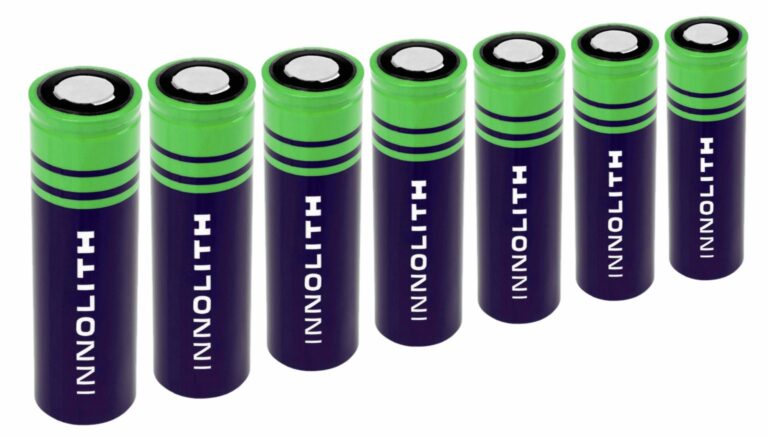Innolith, a European developer of lithium-ion battery cell technologies, has introduced its I-State Power Cell, a specialized battery cell designed for demanding e-mobility applications. The cell is intended for use in sports and luxury electric vehicles, industrial vehicles and electric aviation.
The cell is constructed using NMC/graphite electrode technology in a 21700 cell format. What sets it apart is Innolith’s proprietary non-flammable liquid electrolyte, which enables extended voltage cut-off levels of 4.6V with NMC and 5.0V with other cathode materials. This unique feature enables the cell to achieve an impressive energy density of 280Wh/kg, with rapid 3C discharge rates for consistent current and a long cycle life of over 800 cycles at 1C.
For high-performance applications like sports cars and e-aviation, the cell can deliver pulse currents of 5C for 60 seconds, 8C for 30 seconds and up to 15C for 10 seconds, delivering 2700W/kg of power. Additionally, the cell supports fast charging, going from 10% to 80% state of charge (SoC) in 12 minutes, all while exhibiting one of the lowest internal resistance values among 21700 cells in the market.
Target markets encompass high-performance sports and luxury BEVs, off-road vehicles, industrial applications, defense and electric aviation. The company plans to manufacture the cells through licensing agreements with battery manufacturers, leveraging existing lithium-ion production lines and raw materials.
The cell is expected to offer lower costs per kWh compared to conventional lithium-ion batteries. This cost advantage arises from the higher voltage enabled by the liquid inorganic electrolyte, enabling greater utilization of cathode capacity and reducing the need for expensive active materials. Moreover, the Power Cell is stated to have strong environmental advantages, with nearly complete recyclability of the electrolyte salt and solvent.
Innolith says it has tested the Power Cell in a full 21700 format, collaborating with independent third-party testing organizations and industry partners. Currently, the company is in advanced discussions with automotive and battery OEMs in Europe, Asia and the USA for joint cell development and further commercialization of its I-State technology.


